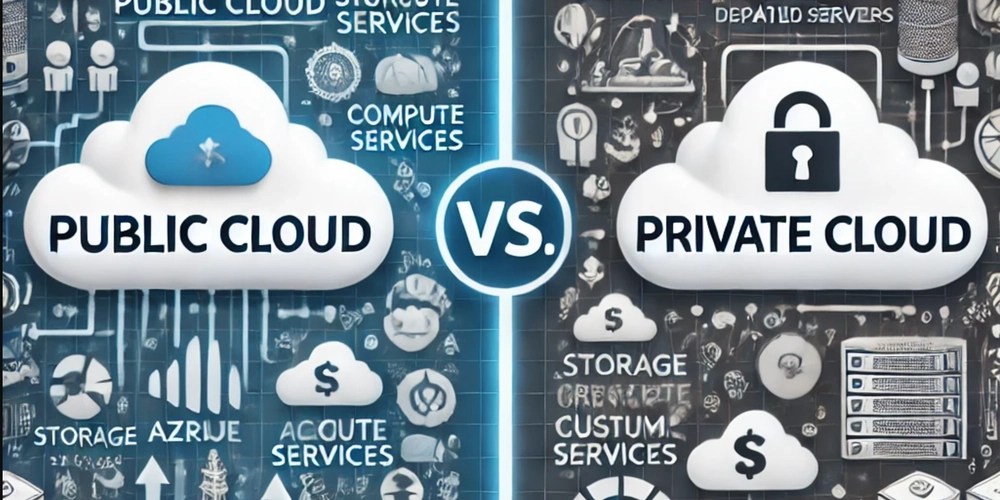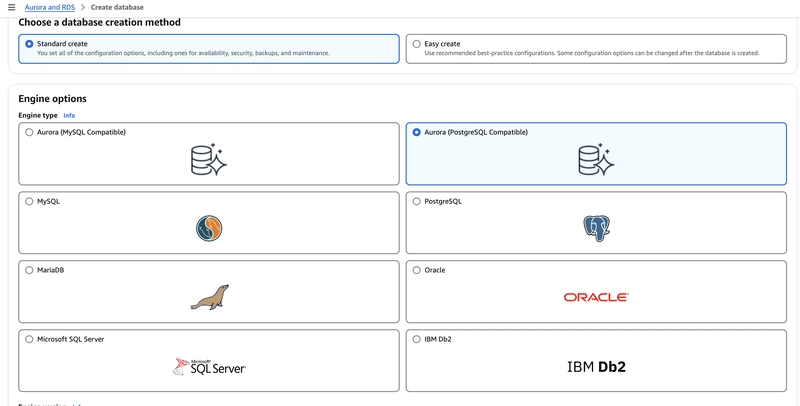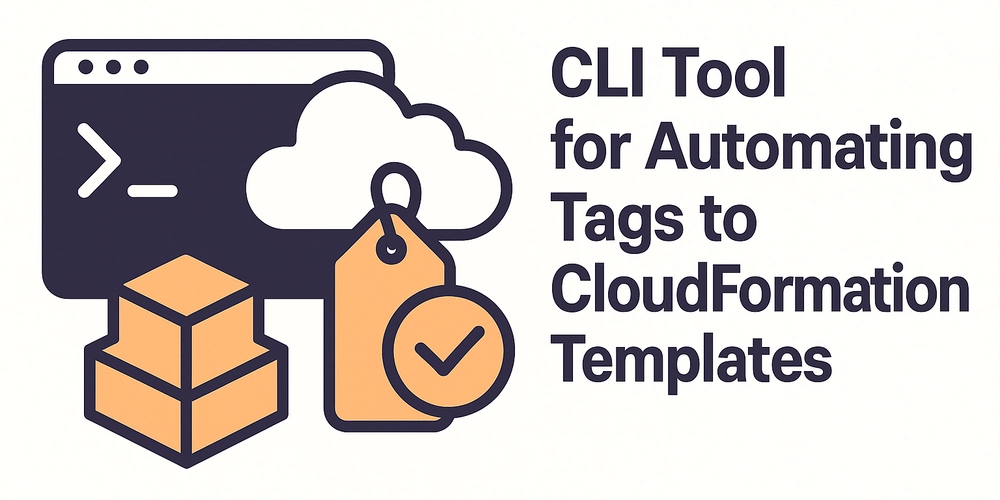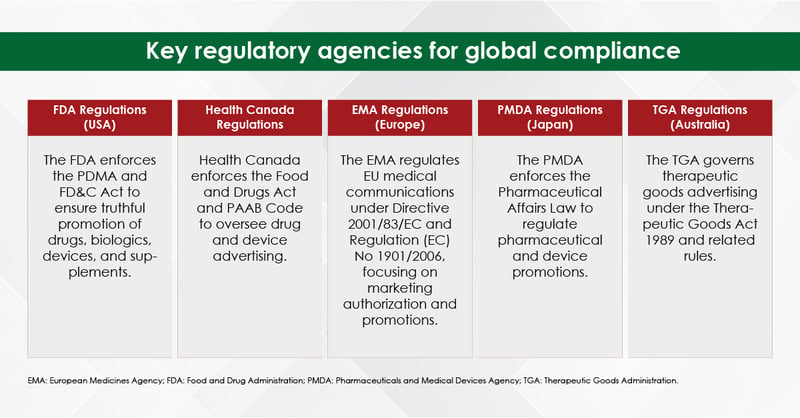Public vs. Private Cloud: Why Private Cloud Might Be the Better Choice for Your Business
As businesses continue to embrace cloud technology, the decision between public and private cloud environments has become a hot topic. As a Senior Solution Architect working in cloud platforms, I’ve seen both sides of the debate. Today, I want to break down the differences and discuss why a private cloud might offer better control, cost-efficiency, and flexibility in the long run. Public Cloud: The Popular Choice with Hidden Costs Public cloud providers like AWS, Azure, and Google Cloud offer a wide range of services that can be deployed quickly. The beauty of the public cloud is its scalability — you can increase or decrease resources as needed, which is perfect for businesses with unpredictable workloads. But here’s the catch: While public cloud can appear cost-effective at first, over time, the costs can spiral out of control. Here’s why: Pay-as-You-Go Model: While the public cloud offers flexibility, the pay-as-you-go model can lead to higher-than-expected costs, especially for businesses that experience fluctuating traffic or resource needs. These variable costs can add up quickly. Vendor Lock-In: Once you start using a public cloud provider’s services, you may find it difficult and expensive to migrate away. Each cloud provider has its own ecosystem of tools, APIs, and services, meaning if you decide to switch vendors, you could face significant migration costs and compatibility challenges. Lack of Customization: Public cloud services are designed to meet a wide variety of needs, but they may not be as customizable as you'd like. If you have specific requirements or a complex infrastructure, you may find the limited customization options restrictive. Private Cloud: Control, Flexibility, and Long-Term Savings On the other hand, private cloud offers a more tailored solution that can address many of the shortcomings of the public cloud. Here's why it might be the better choice for your business: Cost Predictability and Control: Private clouds allow businesses to set up infrastructure based on their exact needs, and unlike public cloud services, costs are more predictable. You own the hardware (or lease it), which means no surprise charges at the end of the month. No Vendor Lock-In: With a private cloud, you have full control over your infrastructure, so you're not tied to a specific vendor’s ecosystem. If you want to switch hardware providers or software platforms, it's much easier (and cheaper) to do so. Customization: Private cloud allows for full customization to fit your business’s specific needs. Whether you need custom security measures, specialized software, or unique configurations, a private cloud can be built exactly to your specifications. Security and Compliance: For businesses in industries with stringent data privacy and compliance requirements (such as healthcare or finance), a private cloud offers the level of security and compliance needed to meet regulations without relying on third-party services. Long-Term Savings: While the initial investment in a private cloud might be higher (especially if you’re building your own data center), over time it can result in significant savings. You can optimize your resources without being subject to the variable costs of public cloud services. The Verdict: Public Cloud vs. Private Cloud In summary, while public clouds offer flexibility and ease of use, they come with hidden costs, vendor lock-in, and limitations in customization. For businesses looking for long-term cost control, security, and flexibility, a private cloud solution may be the more strategic choice. The ability to fully control your infrastructure, avoid vendor lock-in, and customize your cloud environment could be a game-changer, especially as your business grows. Would love to hear your thoughts on this comparison! Do you think private cloud is a good fit for most businesses, or is the public cloud still the go-to solution?

As businesses continue to embrace cloud technology, the decision between public and private cloud environments has become a hot topic. As a Senior Solution Architect working in cloud platforms, I’ve seen both sides of the debate. Today, I want to break down the differences and discuss why a private cloud might offer better control, cost-efficiency, and flexibility in the long run.
Public Cloud: The Popular Choice with Hidden Costs
Public cloud providers like AWS, Azure, and Google Cloud offer a wide range of services that can be deployed quickly. The beauty of the public cloud is its scalability — you can increase or decrease resources as needed, which is perfect for businesses with unpredictable workloads.
But here’s the catch: While public cloud can appear cost-effective at first, over time, the costs can spiral out of control. Here’s why:
Pay-as-You-Go Model:
While the public cloud offers flexibility, the pay-as-you-go model can lead to higher-than-expected costs, especially for businesses that experience fluctuating traffic or resource needs. These variable costs can add up quickly.Vendor Lock-In:
Once you start using a public cloud provider’s services, you may find it difficult and expensive to migrate away. Each cloud provider has its own ecosystem of tools, APIs, and services, meaning if you decide to switch vendors, you could face significant migration costs and compatibility challenges.Lack of Customization:
Public cloud services are designed to meet a wide variety of needs, but they may not be as customizable as you'd like. If you have specific requirements or a complex infrastructure, you may find the limited customization options restrictive.
Private Cloud: Control, Flexibility, and Long-Term Savings
On the other hand, private cloud offers a more tailored solution that can address many of the shortcomings of the public cloud. Here's why it might be the better choice for your business:
Cost Predictability and Control:
Private clouds allow businesses to set up infrastructure based on their exact needs, and unlike public cloud services, costs are more predictable. You own the hardware (or lease it), which means no surprise charges at the end of the month.No Vendor Lock-In:
With a private cloud, you have full control over your infrastructure, so you're not tied to a specific vendor’s ecosystem. If you want to switch hardware providers or software platforms, it's much easier (and cheaper) to do so.Customization:
Private cloud allows for full customization to fit your business’s specific needs. Whether you need custom security measures, specialized software, or unique configurations, a private cloud can be built exactly to your specifications.Security and Compliance:
For businesses in industries with stringent data privacy and compliance requirements (such as healthcare or finance), a private cloud offers the level of security and compliance needed to meet regulations without relying on third-party services.Long-Term Savings:
While the initial investment in a private cloud might be higher (especially if you’re building your own data center), over time it can result in significant savings. You can optimize your resources without being subject to the variable costs of public cloud services.
The Verdict: Public Cloud vs. Private Cloud
In summary, while public clouds offer flexibility and ease of use, they come with hidden costs, vendor lock-in, and limitations in customization. For businesses looking for long-term cost control, security, and flexibility, a private cloud solution may be the more strategic choice. The ability to fully control your infrastructure, avoid vendor lock-in, and customize your cloud environment could be a game-changer, especially as your business grows.
Would love to hear your thoughts on this comparison! Do you think private cloud is a good fit for most businesses, or is the public cloud still the go-to solution?









































































































































































![[The AI Show Episode 142]: ChatGPT’s New Image Generator, Studio Ghibli Craze and Backlash, Gemini 2.5, OpenAI Academy, 4o Updates, Vibe Marketing & xAI Acquires X](https://www.marketingaiinstitute.com/hubfs/ep%20142%20cover.png)



























































































































![[FREE EBOOKS] The Kubernetes Bible, The Ultimate Linux Shell Scripting Guide & Four More Best Selling Titles](https://www.javacodegeeks.com/wp-content/uploads/2012/12/jcg-logo.jpg)



![From drop-out to software architect with Jason Lengstorf [Podcast #167]](https://cdn.hashnode.com/res/hashnode/image/upload/v1743796461357/f3d19cd7-e6f5-4d7c-8bfc-eb974bc8da68.png?#)






































































































.png?#)




.jpg?#)
































_Christophe_Coat_Alamy.jpg?#)








































































































![Rapidus in Talks With Apple as It Accelerates Toward 2nm Chip Production [Report]](https://www.iclarified.com/images/news/96937/96937/96937-640.jpg)








































































































































